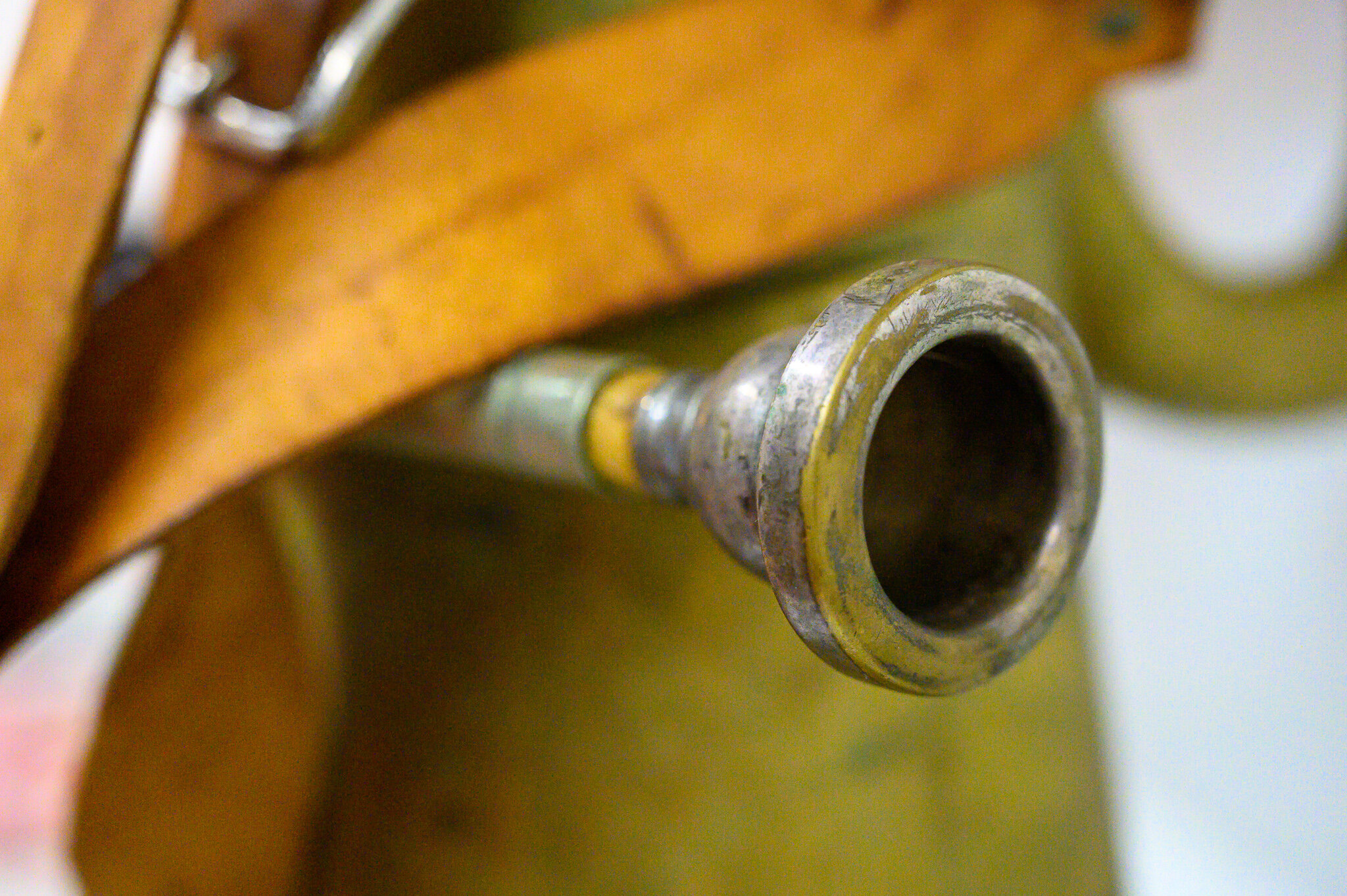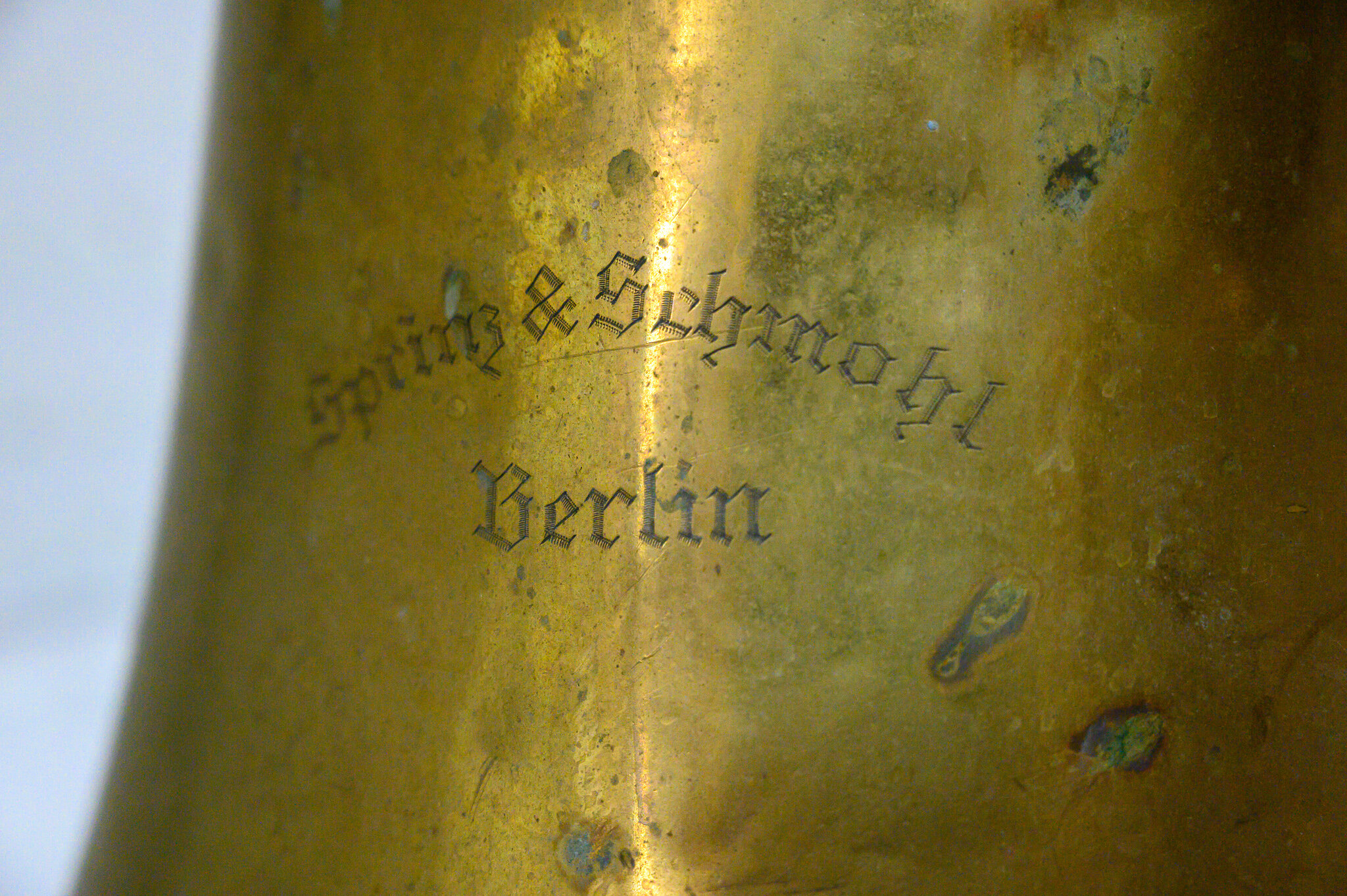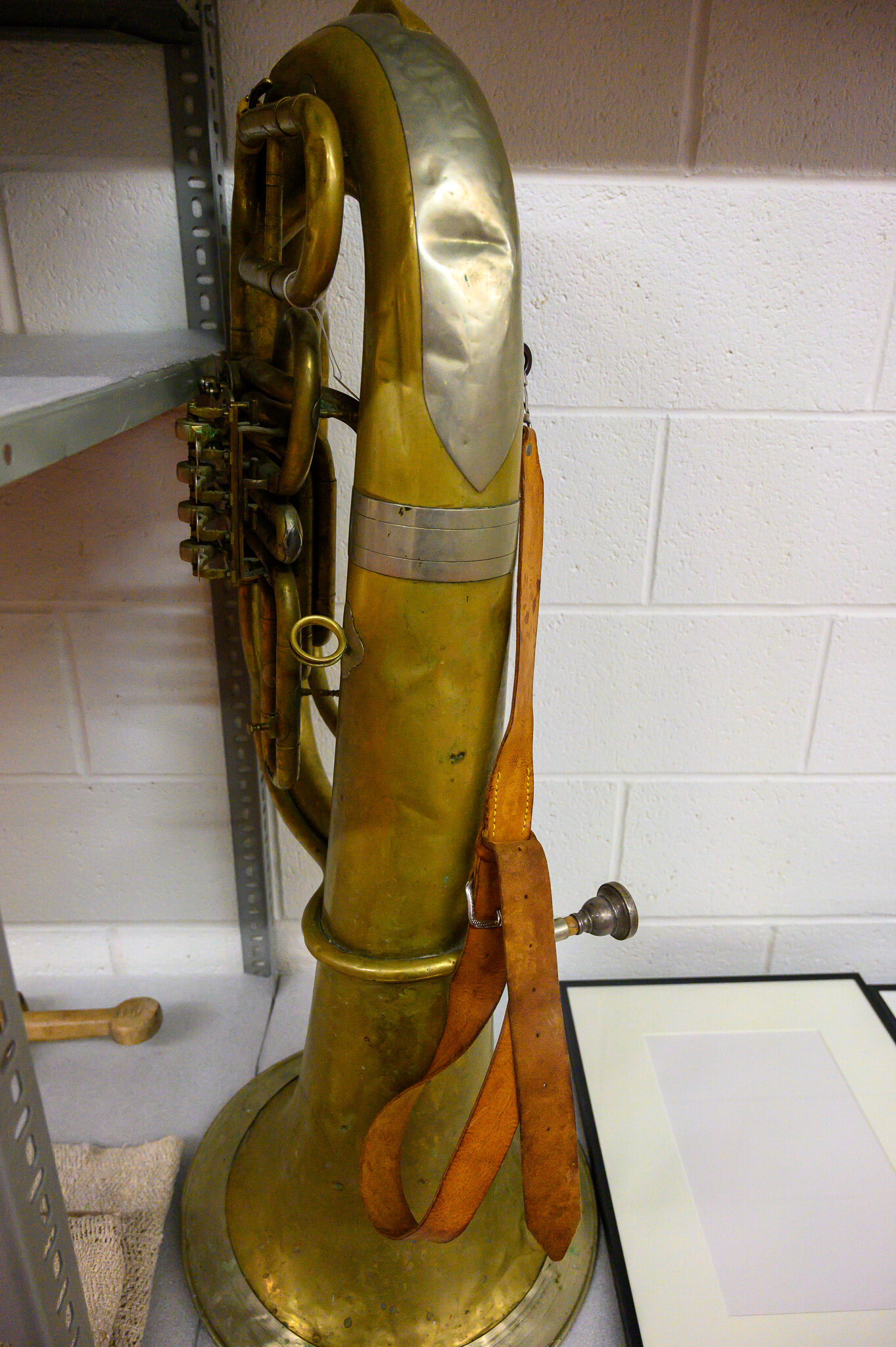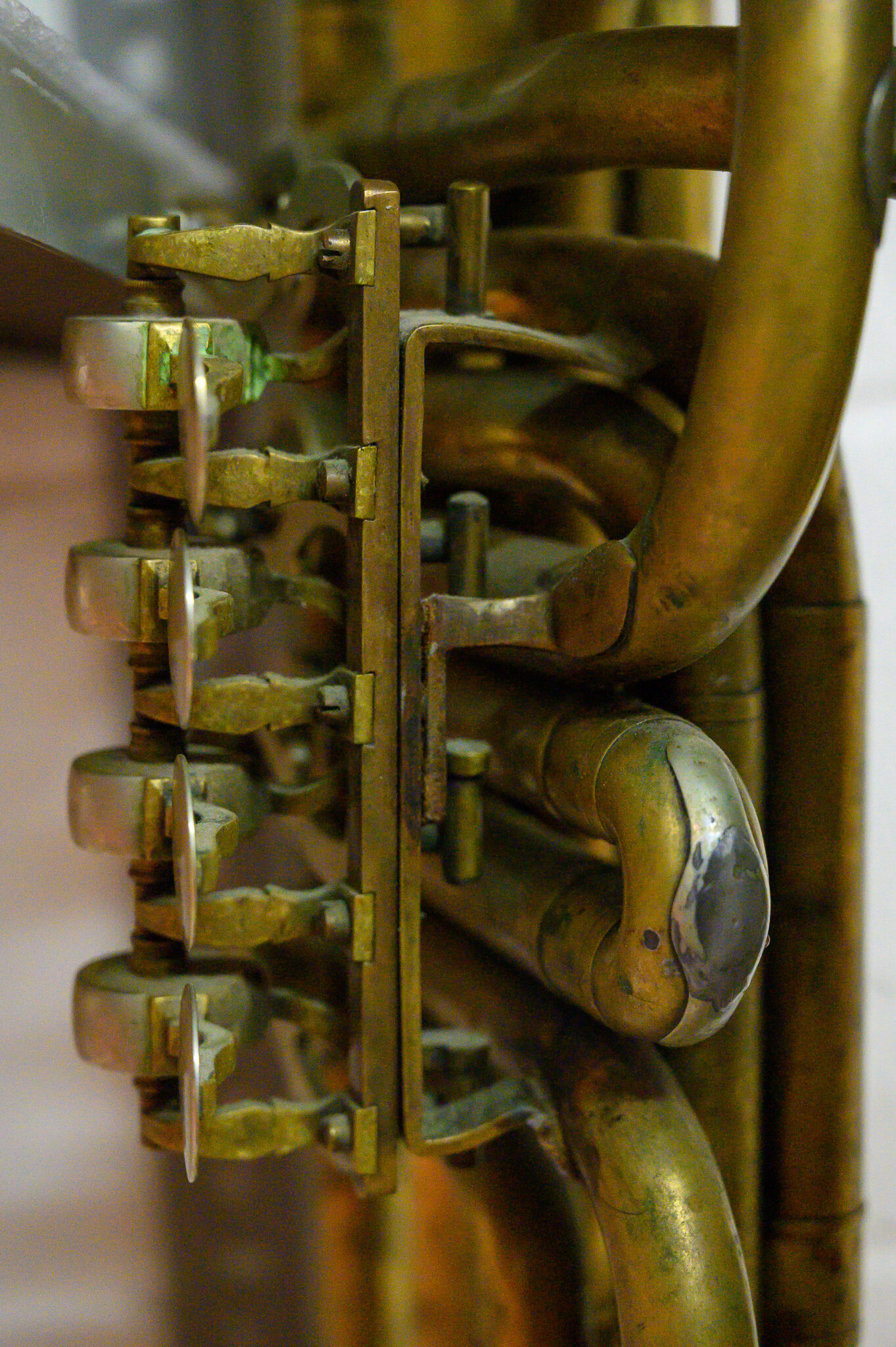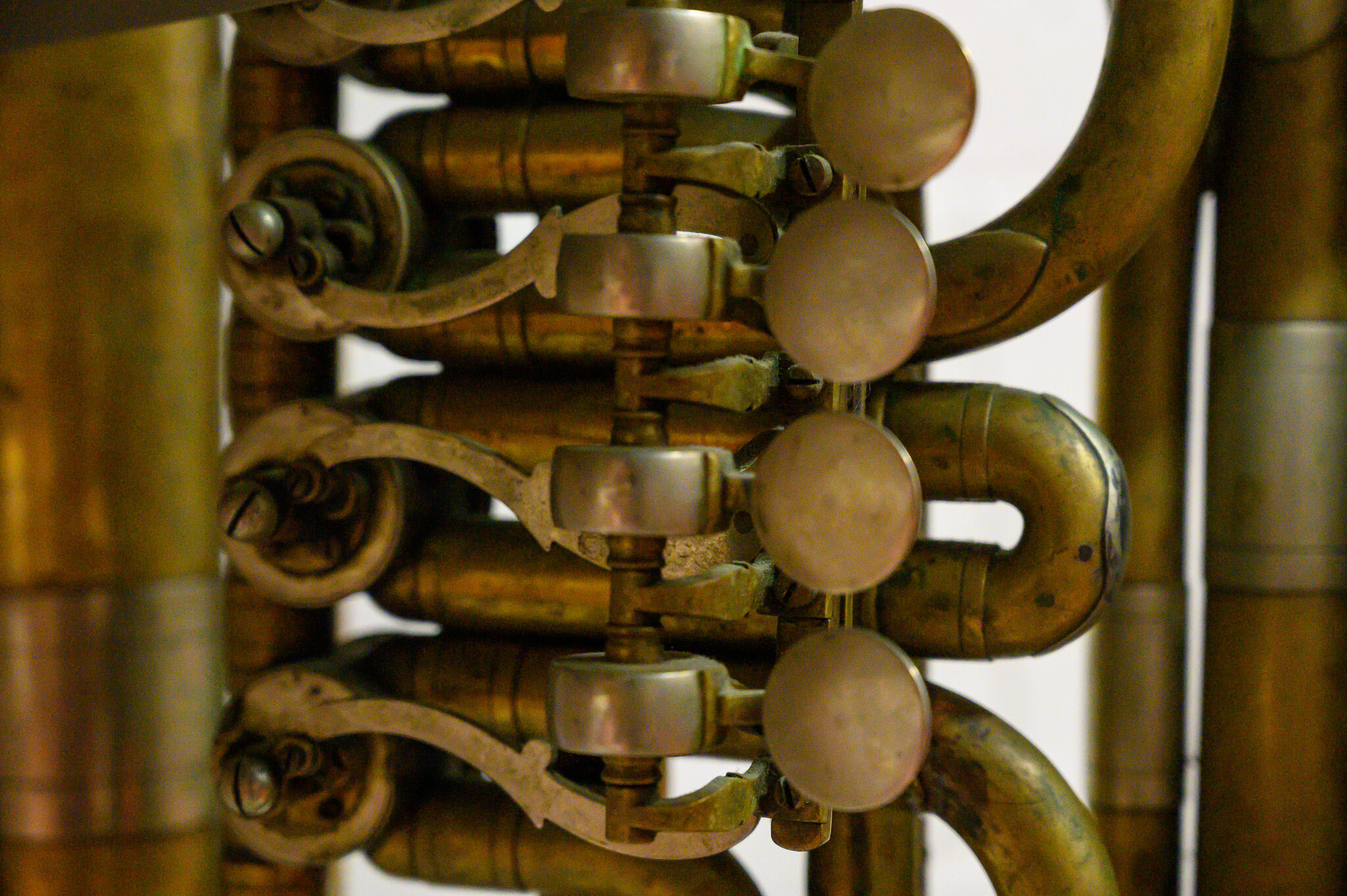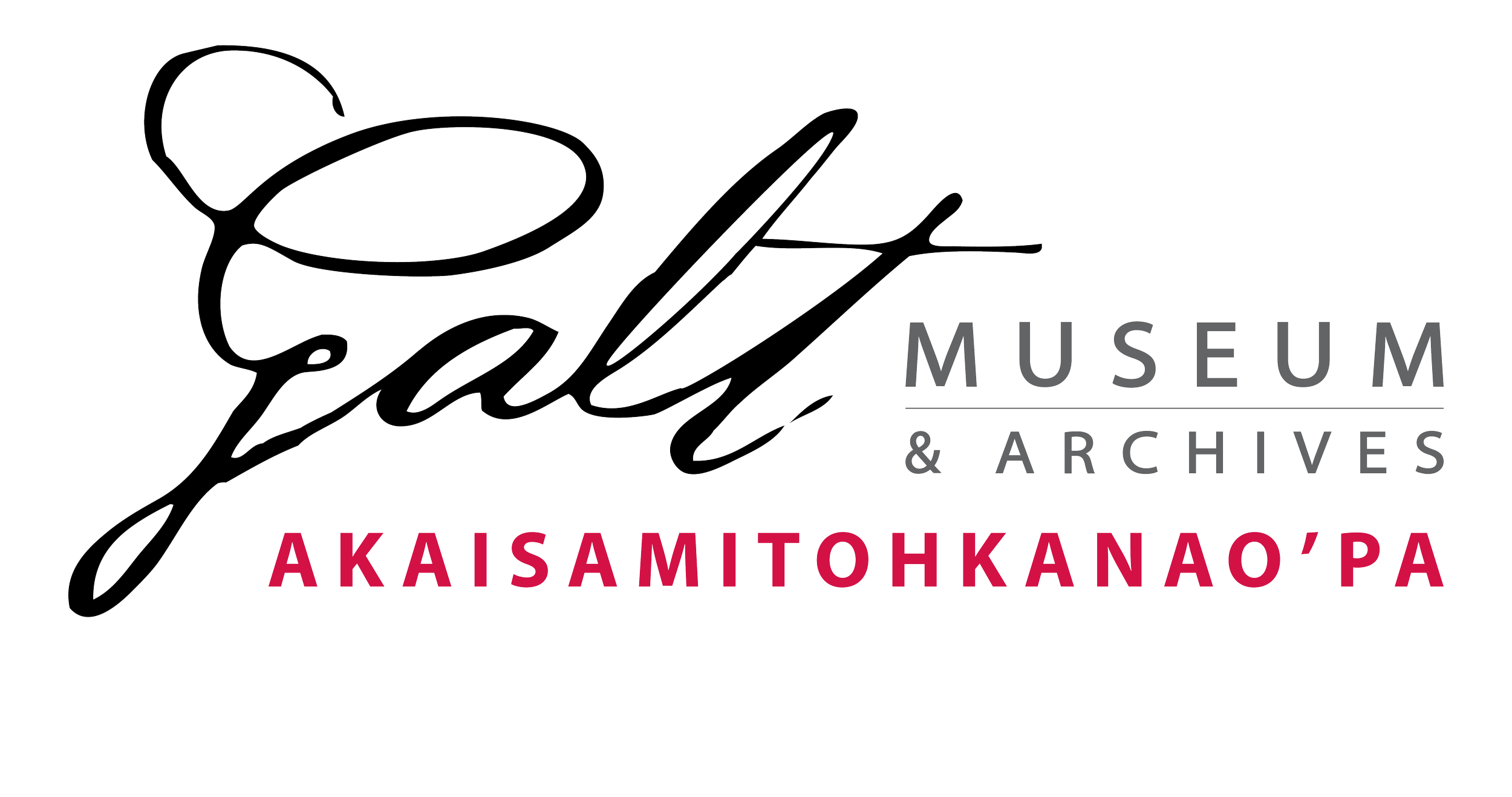German POW Tuba Donated to the Galt
Robert Findlay donated a tuba to the Galt in June 2019. Findlay told Galt staff that he was a member of former local bands that were directed by the late Frank Hosek.
During the Second World War, the British Army captured thousands of members of the German army in northern Africa, including “Rommel’s Desert Corps Band.” The captured band was transported to Canada with their instruments, where they were imprisoned in Prisoner of War Camp 133 in Lethbridge. Frank Hosek, who led several local bands in the years after the end of the war, recalled that the instruments were left behind at the Camp when the internees were repatriated back to Germany. Federal authorities gave the instruments to the Association of Canadian Travelers, who formed public bands in Lethbridge with those German instruments since instrumental music was not taught in the public school system at the time.
Hosek offered music lessons in Lethbridge and directed several different bands and orchestras over the years. Findlay came to know Hosek when he began to take lessons with him as a member of the Lethbridge City Band in the 1950s. Findlay said that Hosek kept the instruments in his garage. “I got to be really good friends with [him] and when his wife died he had to move out of his house. That’s when he wanted to know if I wanted the instruments so that’s when I got them. [He offered them to me] because I was starting a community band… [in] Coaldale… out there at the schools, and we didn’t have any money for instruments.”
Findlay took most of the instruments, including the Camp tuba, “[This tuba] was very unique with the four rotary valves… It’s a real quality instrument, that tuba. It would be sort of the predecessor of what they call a Miraphone tuba which is a real expensive type.” Findlay previously donated a flute and flugelhorn with the same Camp 133 origin story to the Galt in 1990.
The Galt Museum & Archives cares for an extensive collection of objects that help show how people experienced Lethbridge and southern Alberta in the past. These objects are important parts of our cultural heritage. You can explore the full collection of objects online at collections.galtmuseum.com.
